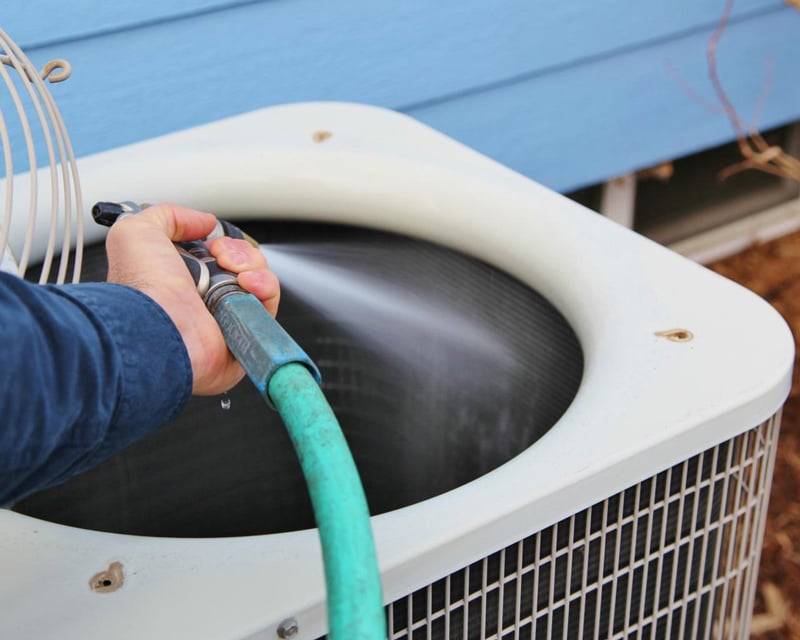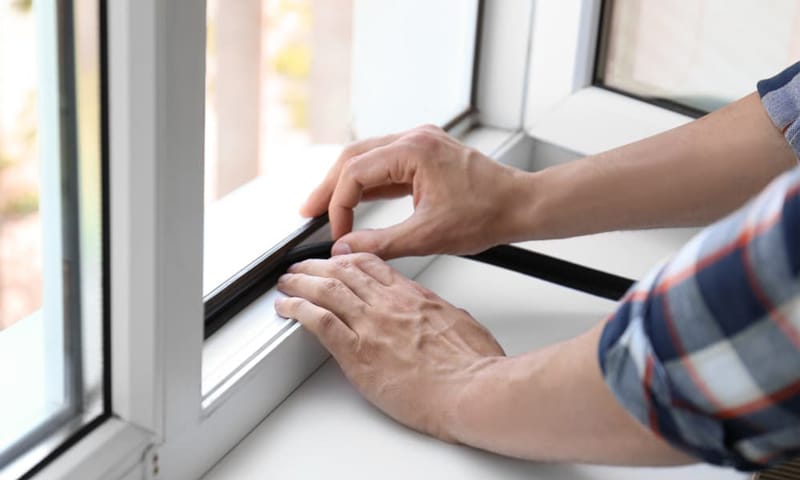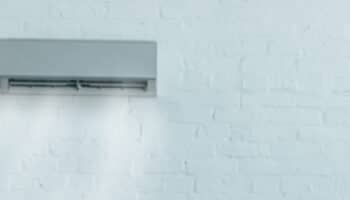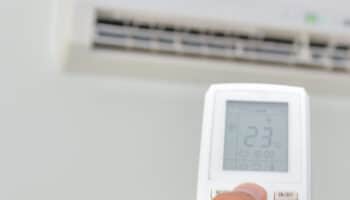We've independently reviewed this article to make sure it's as accurate as we can make it.
To find out more about our article creation and review process, check out our editorial guidelines.
For years, we’ve been hearing that the planet is heating up. Climate change. Global warming.
While we may not be too concerned about what’s happening on the broader scale, most of us would be alarmed when the temperature in our own home seems to be out of control. When you have your air conditioner set to a nice cool setting, but it can’t keep up anymore.
There are several reasons why your air conditioner could be struggling, so let’s talk about those. I’ll also provide you with a list of tips that you can use to support your air conditioning.
Ready to get cool(er)? Read on.
5 Common Reasons Why Your Home Isn’t Cooling
As mentioned above there are multiple factors behind an air conditioner that’s struggling to cool your home. The good news is, for the most part, most of these are simple, inexpensive fixes.
Let’s call them air conditioning best practices.
1. Lack of Proper Maintenance
A lack of maintenance is typically the number one reason behind any component of your HVAC system not working efficiently or up to par.
Over time, the things wear out, get dirty, or just stop working. If you keep up with a preventative maintenance schedule, you can stop a lot of problems before they even happen.
Here are several maintenance issues that you can deal with yourself:

Clean Your Condenser and Compressor
The condenser and compressor makeup your outdoor unit, which is arguably the most important part of your air conditioners system.
To clean the unit, do the following:
- Turn off the power, either at the circuit breaker or power at the unit.
- Clean up around the unit. Since it sitting outside exposed to the elements a lot of debris can collect around the unit or in some cases even gets stock in the fins. Use a brush to dislodge as much debris as possible, and then either use a shop vac or a hose to lightly clean any finer debris.
- If any of the fins are bent or misshapen, use a fin comb to straighten them out.
- Level the unit. Over time, the pad your condenser is sitting on will further settle. Since the chances of it remaining perfectly flat as that happens are almost nil, you may need to shim underneath it to get your air conditioner level again.
While this might not seem too important, when your outdoor unit isn’t level, oil and refrigerant can get trapped in the tubes. The worse the slant, the greater the chance of liquids being released in the compressor unevenly and causing an array of problems.
Your Evaporator Coil Needs Cleaning
This is inside your house and usually located inside your air handler (blower) or furnace, behind a door.
Use a soft brush to dust of the coil and then spray it with coil cleaner. When it finishes dripping into the drain pan, clean that as well.
Check out this video for a walk-through on how to clean your evaporator coil.
You Need to Change or Clean Your Filters
Depending on what type of filter you use, part of your regular maintenance should be changing or cleaning them.
You can base this on the manufacturer’s recommendations, but you may have a little bit of play there. Meaning, if your household consists of one or two people and no pets, you may be able to increase the time between changes. If your household includes multiple people and pets, you’ll probably want to change your filter even more often than the manufacturer suggests.
2. High Humidity
As your air conditioner cools your home it also dehumidifies it. However, in some circumstances, it may not remove enough humidity.
Causes for this could be a lack of ventilation in the house, high seasonal humidity, and dirty air filters.
If your air conditioner is running throughout the day, but the only place in your home you feel cool is right beside the vents, this is a good sign that you likely need to add an addition portable humidifier to your home.
3. Leaky Ductwork
If your system is losing a significant amount of air through your ducts it can drop your HVAC’s efficiency by nearly 40%. So not only is running your air conditioner costing you more, but you’re also uncomfortable because it’s not cooling your house.
Talk about a lose lose situation!
And as if the air leaks aren’t bad enough, the leaks could lead to a buildup of grime on the inside of the duct. This will further impact airflow, not to mention blow dirt and dust into your house.
4. Insufficient Insulation
If your home isn’t well-insulated and sealed, it doesn’t matter how good a job your air conditioner does at keeping your house cool. Because all that lovely cool air is seeping out through your walls.
The first thing to check is your windows. Look for cracks and gaps around them and then seal up whatever you find with caulk.

Poor insulation can be more problematic to find, but there are a few things you can check for yourself. Look for gaps around plumbing and electrical outlets. If you spot places where air can infiltrate, one of the best things to use in this situation is spray foam. You can buy it by the can any hardware or big box store.
If you’re looking for the best bang for your buck when it comes to insulation, installing attic insulation is the best way to protect your home’s temperature without footing a large bill.
5. Attic Lacks Proper Ventilation
You may have sufficient insulation in your attic but if hot air is collecting up there and not being released, it has the potential to warm up your entire house.
If you do have ventilation, make sure it’s working properly. If not, you may need to consider adding some. Got an attic fan? Make sure you’ve got it running on a hot day. Many attic fans turn on or off depending on the temperature, so it’s worth making sure you’ve got yours set to a low enough activation temperature.
Check out this video for even more reasons why your air conditioner isn’t keeping up.
Additional Cooling Tips
Perhaps your issue is that your air conditioner just isn’t large enough for your home.
Assuming you’re not ready to run out and buy a new system, here are several ways to help keep the air cool. These can be used independently or used in conjunction with your current HVAC system.
Use Window Coverings
The object here is to block direct sunlight from getting into your home. This will significantly impact interior heat.
Consider Thermal Blackout Curtains
While simply covering the Windows is beneficial, adding an extra layer of insulation will do a better job. These curtains have a backing of insulationand can be found in many styles and colors.
Open Your Windows at Night
Assuming you live somewhere where the temperatures drop significantly at night, open your windows to circulate some of the warmer air out of your home.
Switch to LED Light Bulbs
Incandescent light bulbs add significant heat to a room. These bulbs emit more than 90% of their energy as heat. For example, a regular 100 W bulb can reach temperatures of 4600°F at the filament, while the outside temperature of the bulb can be anywhere between 150 to 250°.
This heat is spread throughout the room.
Conclusion
To recap, there are at least five reasons why your air conditioner can’t keep up. They are:
- Lack of proper maintenance
- High humidity
- Leaky ductwork
- Insufficient insulation
- Attic lacks proper ventilation
Of course, the other reason is that it’s your air conditioner is broken or not big enough.
If you’re not in a position to purchase a new system immediately, try some of the tips mentioned above.
Hopefully, this article has addressed your situation, and you’re able to cool your home. While you’re here, why not check out some of the related posts below?
Maybe we can help you with something else.







